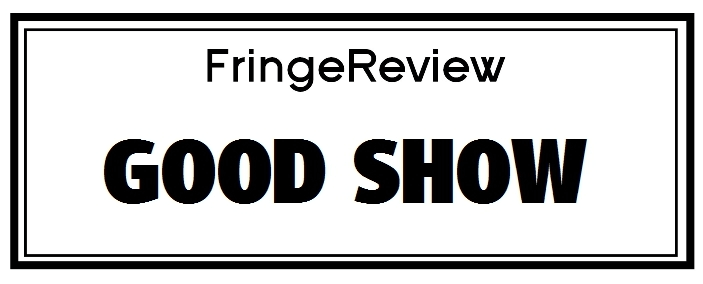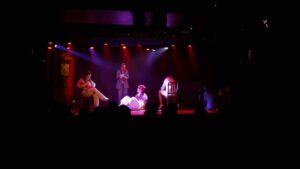FringeReview Scotland 2024
To The Letter
Canonical Theatre

Genre: Community Theatre
Venue: Oran Mor, Glasgow
Festival: FringeReview Scotland
Low Down
At the side of a road, two sisters discover an abandoned post box. One, Jesse is filled with a desire to enrich things by reading these letters out. Morgan, who eschews the job her sister has as a podcaster is less inclined to rip into the lives of others, though curiosity eventually wins out. They are then taken, over 6 letters, including a series of postcards, to experience the insight of other people’s lives through some intimate thoughts and well expressed angst. It leads to the pursuit of one out of the six storylines returning to us as a second act to complete the narrative and find a Happy Ever After, after all.
Review

At the side of a road, two sisters discover an abandoned post box. One, Jesse is filled with a desire to enrich things by reading these letters out. Morgan, who eschews the job her sister has as a podcaster is less inclined to rip into the lives of others, though curiosity eventually wins out. They are then taken, over 6 letters, including a series of postcards, to experience the insight of other people’s lives through some intimate thoughts and well expressed angst. It leads to the pursuit of one out of the six storylines returning to us as a second act to complete the narrative and find a Happy Ever After, after all.
Within To The Letter, there are some nice flourishes. Each of the storylines have the potential to develop into further full blown opportunities, hinting at more than creatively forgotten epistles in a post box. In particular, the first letter, helped by deft direction which kept the surprise in check until the end gave much promise. Having the actor on the floor becoming the babe in arms worked exceptionally well and gave the piece an artistry which shows real promise.
The issue around the script, however, begins with the exchanges between the sisters. At times they became more about exposing things than developing themes. At one point it felt like listening to 21st century angst written clichés, more than natural dialogue between two siblings. It gave both actors a bit of a disadvantage in comparison to the rest of the cast; they had to work on the framing of the artistry within between their lines and not until the second act, did they get to become part of the more creative aspect of the production. The script also has the narrative issue raised by a number of postcards from Italy ending up in the same post box. I did not have to consult my former Royal Mail Manager relative to know that one postcard from Italy was unlikely to end up in a British post box, never mind several. It destroyed elements of the faith we needed to have in the piece. Perhaps a grisly murder of a postman from 20 years ago where his bags of post to be delivered and collected from a post box would have worked better – I was not thinking of my former Royal Mail Manager relative at the time, I swear – and given the sisters something more to contemplate at the beginning.
In terms of direction there was some really good stuff – the first letter, the alien attack – and later the final group work that allowed the cast to mingle and drape themselves over each other in a very “West End” manner but in an entirely appropriate way was really good. There were a few missteps – keeping the two actors onstage for about 15 minutes before the start with nothing to do, should be ditched.
Like all production’s dependent upon community casts, performances were varied, though nobody should doubt the sincerity of approach and enthusiasm of all the cast. That shone through. What was missing often was the security and subtlety of knowing that a glance measured more than a word.
Theatrically the beginning was also struggling to be heard. Microphones in the second act helped but keeping them close to the mouth helps more. It meant that some of the set up at the start was totally lost. To be fair, however, playing catch up was not that difficult. The costumes and especially the make-up gave it a sense of a radical tinge which allowed much more freedom in approach – that worked rally well.
Overall, therefore what we got was a real sense of promise rather than a fully developed delivery of artistry. Bold, imaginative, different but needing polish – perhaps even longer and deeper rehearsals – in their second production Canonical have proven worthy of their place on that stage – what they do with that place needs to see that promise deliver.


















































